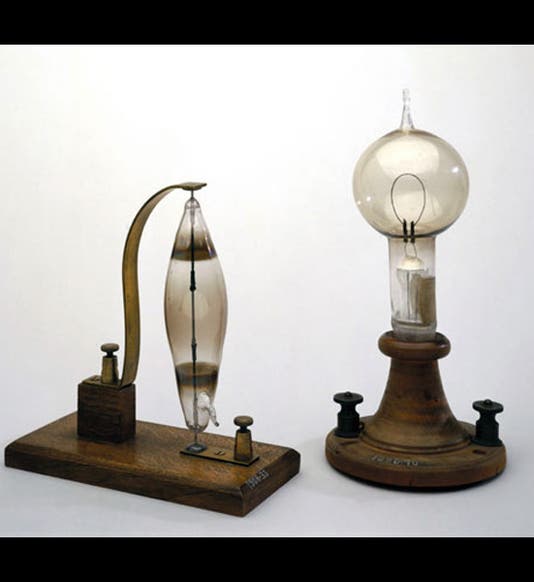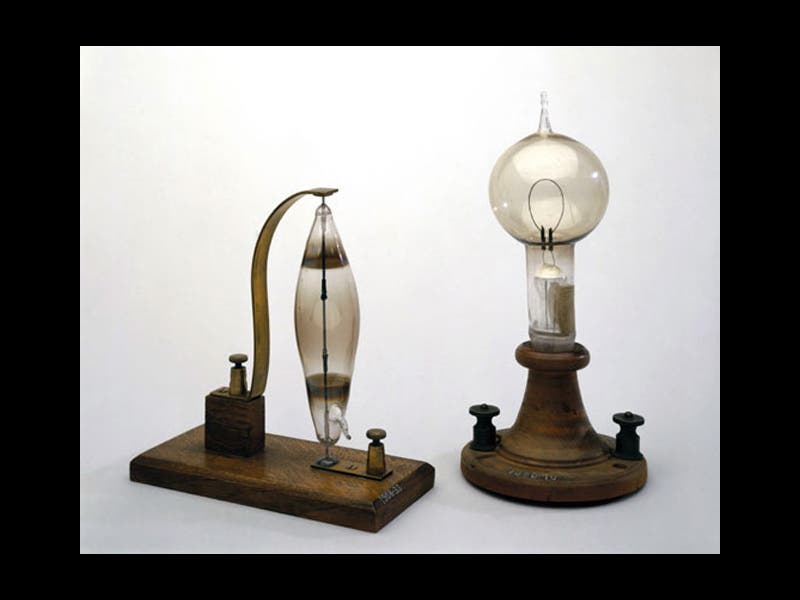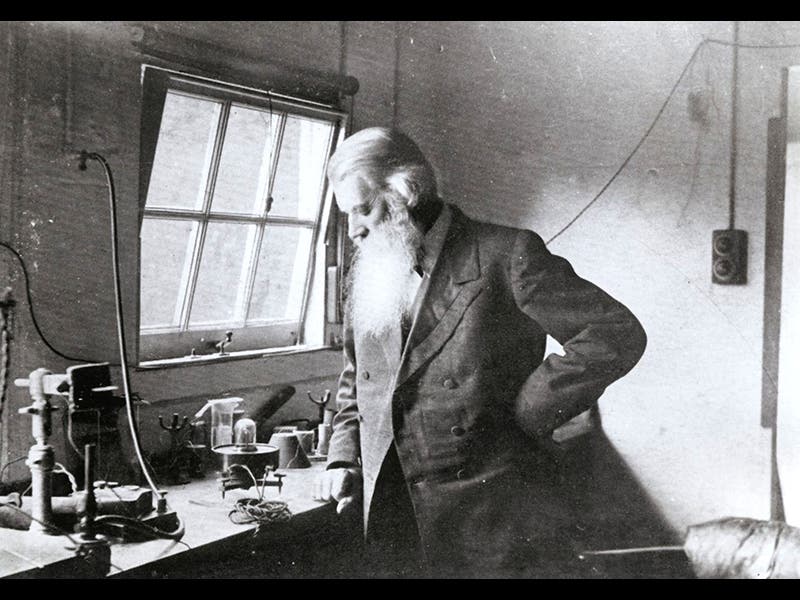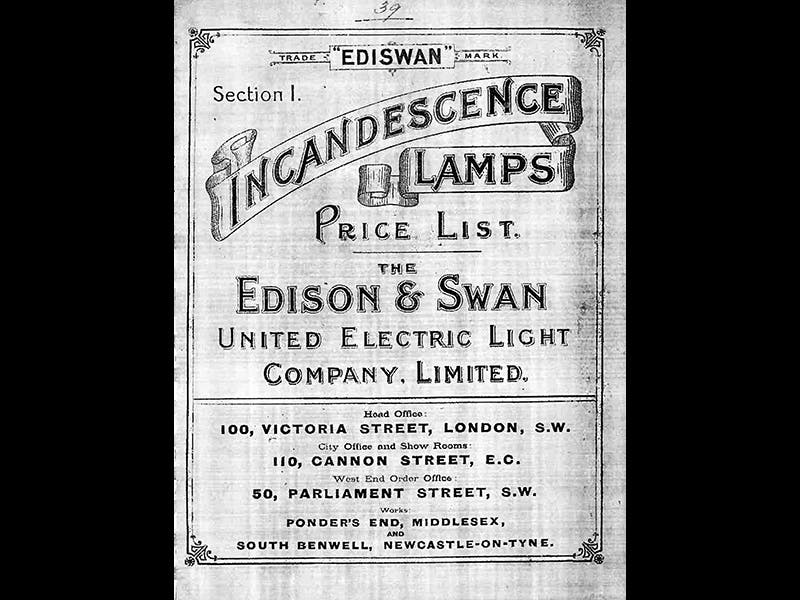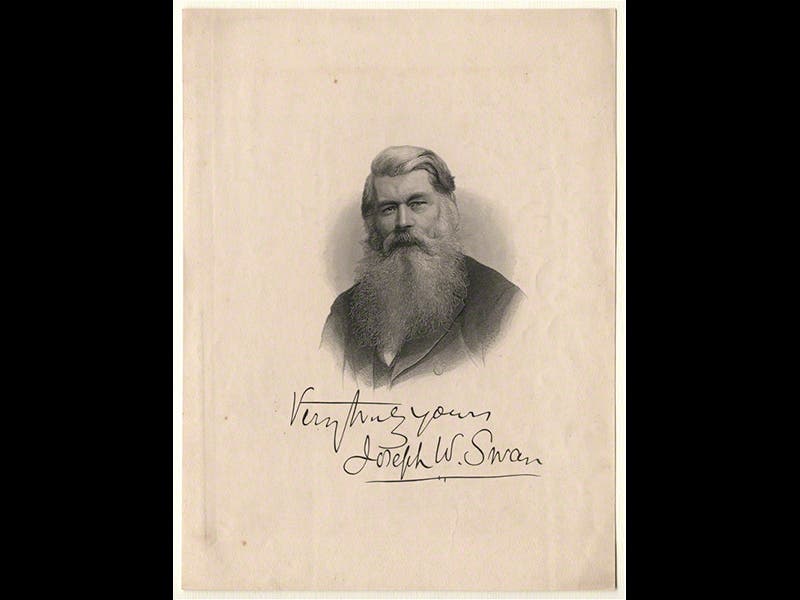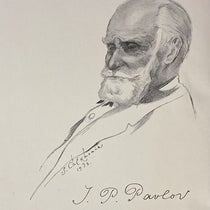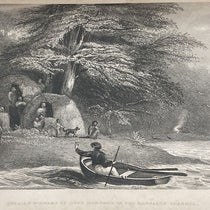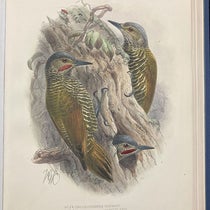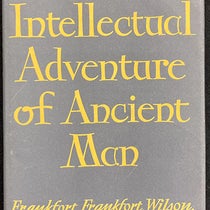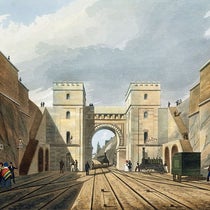Scientist of the Day - Joseph Wilson Swan
Joseph Wilson Swan, a British inventor, was born Oct. 31, 1828. In 1979, the organizers of the “International Centennial of Light” in the United States, preparing to celebrate the 100th anniversary of the invention of the light bulb by Thomas Edison on Oct. 21, 1979, were a bit surprised to learn that the British were organizing their own "Electric Lamp Centenary,” and that they were honoring not Edison, but Swan. The English festivities were to begin almost 8 months earlier, on Feb. 3, 1979, commemorating the date that Swan demonstrated his light bulb to an audience in his home city of Newcastle-on-Tyne. Swan, it turns out, had been trying to develop an electric bulb since 1845. Unlike Edison 30 years later, Swan avoided metal filaments, because they fused and burned up. By 1855, Swan had settled on carbon as the ideal filament. But because vacuum pumps were not very good in 1855, the carbon filaments oxidized and burned out much too quickly. Swan gave up and turned to photography, inventing the carbon print photographic process in the 1860s and manufacturing dry photographic plates in the early 1870s. Meanwhile, someone finally invented a decent vacuum pump, and in 1877, Swan returned to his light bulb experiments. Now the carbon filaments in his high-vacuum bulbs continued to glow for a long time. He demonstrated his light bulb to a crowd of 700 in Newcastle on Feb. 3, 1879, and then went out and electrified his house, and then an entire street in Newcastle. We see above a photo of Swan in his Newcastle lab, taken about this time (second image).
Edison, meanwhile, had announced in October of 1878 that he could make an electric bulb, and he immediately attracted a bevy of investors. But in truth, he did not yet have a filament-- a "burner" for his bulb. He experimented for almost a year, trying every metal available, his best success coming with platinum, but the metal was too expensive for an affordable bulb. Then, in early October of 1879, he read an article in Scientific American about an English experimenter, Joseph Swan, who had had success using carbon as a filament. That very day, Edison began experimenting with carbon, and within two weeks, he made his successful demonstration, the one being commemorated all over the U.S. in October of 1979. Edison applied for his patent before the bulb had cooled down. Swan never applied for a patent at all.
In 1880, Swan began manufacturing light bulbs. The Edison people came over to England and threatened a lawsuit for patent infringement, and quickly discovered that they had no grounds, and that if they pursued a suit, the Edison patents would almost certainly be invalidated, since Swan's work preceded his. So instead of suing Swan's company, they merged with it, forming the Edison and Swan Company, which manufactured bulbs, using the brand name Ediswan, right up until the 1930s (third image).
Why do most people think of Edison as the inventor of the light bulb? Probably because Edison knew that a light bulb was useless without an entire supply system, an electric power grid, which he developed in short order. And because he was a very good inventor, even if he sometimes forgot to tell people that he borrowed a few of his good ideas. And because he held the patents. But the British remember Swan, especially since the Electric Lamp Centenary put him back on the map in 1979. He has a blue plaque in Newcastle and a better plaque nearby that isn’t blue (fourth image), and a portrait in the National Portrait Gallery (fifth image), and one of his early bulbs is on display in the Science Museum in London (first image; Swan’s bulb is on the left, Edison’s on the right). And, dubbed Sir Joseph in 1904, he has a knighthood, the one honor that Edison could never receive in his country without a king.
Dr. William B. Ashworth, Jr., Consultant for the History of Science, Linda Hall Library and Associate Professor, Department of History, University of Missouri-Kansas City. Comments or corrections are welcome; please direct to ashworthw@umkc.edu.

